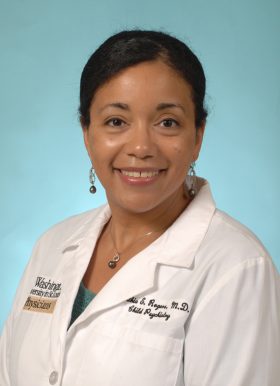
Cynthia Rogers, MD
Blanche F Ittleson Professor of Psychiatry
- Email: rogersc@wustl.edu
Dr. Rogers is a Professor in Child and Adolescent Psychiatry who specializes in treating children and mothers for psychological concerns including postpartum depression, anxiety, perinatal mental health, infant mental health, Autism Spectrum Disorders, and disruptive behavior disorders. She is the director of the Washington University Neonatal and Developmental Research Team and her areas of research interest include investigating the relationship between abnormal brain development and psychiatric disorders in young children and the impact of adverse psychosocial environment on brain development. Dr. Rogers earned her medical degree, psychiatry residency, and a fellowship in child and adolescent psychiatry at Washington University School of Medicine.
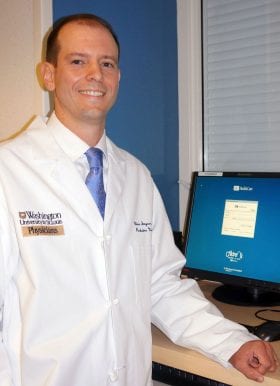
Christopher Smyser, MD
Professor of Neurology and Pediatrics
- Email: smyserc@wustl.edu
Dr. Smyser is a professor in Pediatric Neurology specializing in inpatient and outpatient neonatal neurology, pediatric stroke, cerebral palsy, and other developmental disorders. His areas of research interest include mapping structural connections within and between systems in the neonatal brain through collection and analysis of functional connectivity MRI data. Dr. Smyser earned his medical degree and a residency in pediatrics from the University of Iowa College of Medicine. He also served as Chief Resident in Neurology during his Residency in Pediatric Neurology at Washington University School of Medicine.
Faculty

Jeffrey Neil, MD, PhD
Professor of Neurology (Pediatric) and Radiology
Jeff is a practicing Child Neurologist with a PhD in Neuroscience. He attended Washington University in St. Louis for medical school and obtained his PhD in the lab of Dr. Arthur Lowey, an expert in brainstem autonomic pathways. Jeff’s research has been focused on the application of magnetic resonance imaging (MRI) to understanding brain development and injury in babies. His research interests include the technical aspects of magnetic resonance methods. He has also studied the biophysics of tissue water diffusion (for diffusion MRI) using single cells, tissue culture, and animal models. He has developed and applied diffusion and functional MRI methods to assess cerebral white and grey matter maturation and injury in human infants. He is past president of the International Society for Magnetic Resonance in Medicine.
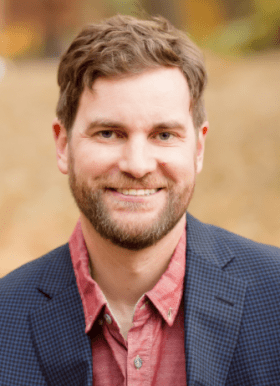
Ryan Bogdan, PhD
Associate Professor
- Phone: 617-407-5645
- Email: rbogdan@wustl.edu
Studies how genetic variation and environmental phenotypes are associated with psychopathology and related behavior and biology (e.g., neuroimaging, inflammation). For more information, please see: http://bogdanlab.com/
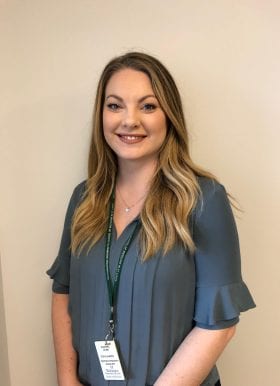
Rachel Lean, MS, PhD
Assistant Professor
- Email: rachel.lean@wustl.edu
Rachel is an Instructor in Psychiatry investigating the neurological and socio-environmental mechanisms underlying the development of cognitive delay, executive dysfunction, and psychiatric disorders in children born very preterm. Rachel has a specific in interest in the identification of the potentially modifiable socio-environmental factors that influence the developmental outcomes of very preterm children, including the role of maternal psychosocial wellbeing, parenting behaviors, and family functioning. Additionally, she has used structural and diffusion tensor imaging analyses to explore links between socio-environmental adversity, infant brain development, and subsequent neurodevelopmental impairments. Rachel received her PhD in Psychology from Washington University in St. Louis, Department of Psychological and Brain Sciences.
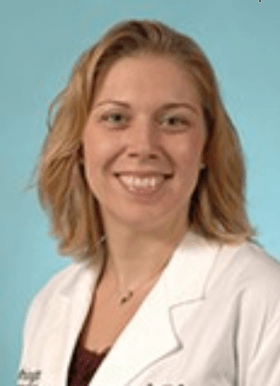
Cynthia M Ortinau, M.D.
Assistant Professor of Pediatrics, Newborn Medicine
Cindy grew up in St. Louis, MO and graduated from a 6-year combined B.A./M.D. program at the University of Missouri – Kansas City School of Medicine. She completed her Pediatric Residency and Neonatal-Perinatal Medicine Fellowship at Washington University/St. Louis Children’s Hospital. She undertook her initial research training in neonatal brain injury, brain development, and neurodevelopment under the mentorship of Terrie Inder, M.D., M.B.Ch.B. During this time, she earned a Master of Science in Clinical Investigation from Washington University. She now leads the Cardiac Neurosciences Group at Washington University, a research program dedicated to understanding the nature, timing, and mechanisms of brain injury and altered brain development in patients with congenital heart disease. Her ultimate goal is to identify strategies for improving developmental outcomes in these children. She has been the Principal Investigator or Co-Investigator for several single-center and multi-site studies related to cardiac neurodevelopment. Her current work focuses on fetal brain development in congenital heart disease.
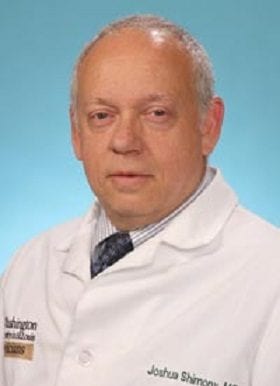
Josh Shimony, MD, PhD
Professor of Radiology
Joshua Shimony is an Professor of Radiology who collaborates with the WUNDER Lab on imaging techniques for the studies. He specializes in diagnostic radiology and pediatric neuroradiology and his primary research lab is part of the Mallinckrodt Institute of Radiology. His research focuses on developing techniques and applications for advanced MR Imaging methods in order to look at the effect of neuropathologies on brain structure. He earned his medical degree at University of Illinois College of Medicine and his PhD in Physics at University of Tennessee in Knoxville.
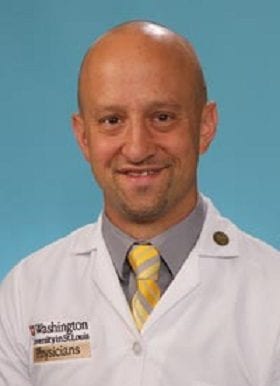
Chad Sylvester, MD, PhD
Assistant Professor of Psychiatry (Child)
Chad Sylvester is an Assistant Professor of Psychiatry who specializes in anxiety disorders and pediatric psychiatry. His research interests include studying functional brain networks in childhood anxiety disorders. He received his MD, PhD at Washington University School of Medicine, as well as a residency in Psychiatry and Fellowship in Child and Adolescent Psychiatry.
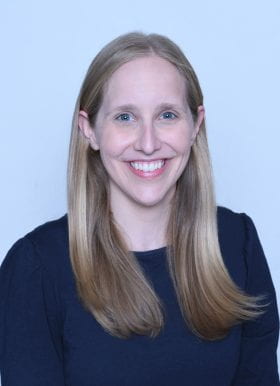
Regina Triplett, MD, MS
Assistant Professor of Neurology
- Phone: 314-454-6120
- Email: rtriplett@wustl.edu
Regina Triplett is a practicing child neurologist with a specialization in epilepsy and EEG. She sees children with epilepsy and related disorders in the hospital and in the clinic. In 2015, she completed her medical degree and a master’s degree in clinical research at the University of Pittsburgh, PA. She then came to Washington University in St. Louis for her child neurology residency and epilepsy fellowship training. She conducted research as a resident and later, postdoctoral fellow, with the WUNDER lab beginning 2017. Now, her collaborative work is focused on using multimodal MRI and EEG techniques to study healthy and disrupted neurodevelopment in infants with a range of risk factors, particularly focused on those at high risk of developing epilepsy. She currently directs a clinical study using high-density EEG in the Neonatal Intensive Care Unit (NICU) designed to better understand how seizures and epilepsy develop in infants born preterm. Her long-term goals are to use her findings to design and run clinical trials to treat or prevent epilepsy.

Muriah Wheelock, PhD
Assistant Professor
- Email: mdwheelock@wustl.edu
Dr. Wheelock is an Assistant Professor in the Radiological Sciences Division of the Mallinckrodt Institute of Radiology at Washington University in St. Louis. Dr. Wheelock obtained her PhD in Behavioral Neuroscience from the University of Alabama at Birmingham where she studied the behavioral and neural response to psychosocial stress using functional and structural connectivity analysis. During her postdoctoral training in Developmental Neuroscience at Washington University in St. Louis, she utilized graph theory to determine brain networks underlying healthy and disordered cognitive and behavioral development. Her lab has received support from the BRAIN Initiative and National Institute of Biomedical Imaging and Bioengineering to develop and disseminate network level analysis statistical methods for connectome-wide association studies across the lifespan and in health and disease. Her lab additionally examines infant brain connectivity development and brain degeneration in Alzheimer disease supported by awards from the National Institute of Child Development and the National Institute of Aging.